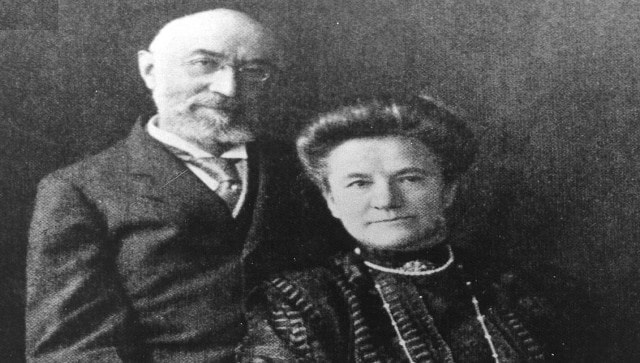On Thursday, the US Coast Guard confirmed that the five passengers on board the Titanic tourist submersible died after their vessel suffered a ‘catastrophic implosion’. The announcement took people around the world, especially those on social media, who had been preoccupied with the fate of the five men and were holding out hope against hope, by shock. Many of those people during the rescue mission and in the aftermath of the announcement wondered why these men would risk their lives to view the wreckage of the Titanic. Let’s take a closer look at why Titanic tourism continues despite its many dangers: The obsession The RMS Titanic sank in the early hours of 15 April, 1912. The ship some had deemed ‘unsinkable’ rammed into an iceberg on its maiden voyage from England to New York. More than 1,500 people were killed. The wreckage was located in 1985 by National Geographic explorer Robert Ballard and French oceanographer Jean-Louis Michel. It lies on the floor of the North Atlantic 600 km south-southeast of Newfoundland at a depth of more than 3.2 kilometres.
For some, this wreckage has become an obsession.
As Oceangate Expeditions CEO Stockton Rush – who died in the incident – previously told CBS, “We have clients that are Titanic enthusiasts, which we refer to as ‘Titaniacs,’ we have people who have mortgaged their home to come and do the trip and we have people who don’t think twice about a trip of this cost." [caption id=“attachment_12762542” align=“alignnone” width=“677”] This handout image taken during the historical dive, courtesy of Woods Hole Oceanographic Institution and released in February 2023, shows the Titanic bow.[/caption] “We had one gentleman who had won the lottery.” Reporter David Pogue, who filed the CBS report, spoke to a banker and diving enthusiast who had been saving her money to see the wreck for the past three decades. “Dreams don’t have a price,” Renata Rojas said. “Some people want a Ferrari, some people want a house, I want to go to Titanic.” Rojas in 2017 told Reuters she dreamed of visiting the wreckage since she was a little girl. “I’ve made a lot of sacrifices over time,” she added. Among those obsessed with the Titanic is James Cameron – the man who made the 1997 blockbuster about a fictional tragic love story that became one of the most nominated movies in Academy Award history. Cameron, who has made the trip to the wreckage dozens of times, told Playboy in 2009 that the Titanic was “the Mount Everest of shipwrecks, and as a diver I wanted to do it right.” “I made ‘Titanic’ because I wanted to dive to the shipwreck, not because I particularly wanted to make the movie,” Cameron added. Don Lynch, historian of the Titanic Historical Society, explained the public fascination with the Titanic to Salon thus: “It is the ultimate story: it’s unsinkable, supposedly, and you’ve got it full of all these key people, like the president of the company that owns it, and the president of the company that built it, and as well as all these famous people . . . and then on its maiden voyage, it hits an iceberg and then sinks so slowly.” “And then there’s all this time for all this drama to be acted out, like the band playing — that just doesn’t get duplicated.” [caption id=“attachment_12778732” align=“alignnone” width=“640”]
This handout image taken during the historical dive, courtesy of Woods Hole Oceanographic Institution and released in February 2023, shows the Titanic bow.[/caption] “We had one gentleman who had won the lottery.” Reporter David Pogue, who filed the CBS report, spoke to a banker and diving enthusiast who had been saving her money to see the wreck for the past three decades. “Dreams don’t have a price,” Renata Rojas said. “Some people want a Ferrari, some people want a house, I want to go to Titanic.” Rojas in 2017 told Reuters she dreamed of visiting the wreckage since she was a little girl. “I’ve made a lot of sacrifices over time,” she added. Among those obsessed with the Titanic is James Cameron – the man who made the 1997 blockbuster about a fictional tragic love story that became one of the most nominated movies in Academy Award history. Cameron, who has made the trip to the wreckage dozens of times, told Playboy in 2009 that the Titanic was “the Mount Everest of shipwrecks, and as a diver I wanted to do it right.” “I made ‘Titanic’ because I wanted to dive to the shipwreck, not because I particularly wanted to make the movie,” Cameron added. Don Lynch, historian of the Titanic Historical Society, explained the public fascination with the Titanic to Salon thus: “It is the ultimate story: it’s unsinkable, supposedly, and you’ve got it full of all these key people, like the president of the company that owns it, and the president of the company that built it, and as well as all these famous people . . . and then on its maiden voyage, it hits an iceberg and then sinks so slowly.” “And then there’s all this time for all this drama to be acted out, like the band playing — that just doesn’t get duplicated.” [caption id=“attachment_12778732” align=“alignnone” width=“640”] Isidor and Ida Straus, first-class passengers who died on the Titanic, around 1910. The New York Times[/caption] Indeed, Rojas in 2017 told Reuters that part of what drew her to the wreckage is because it was “a tragedy that wasn’t supposed to happen.” “It disappeared for years, it was mystical, and that attracts a lot of people,” she said. “That’s what attracted me to it.” The adrenaline Some, including the ultra-wealthy, do it for sheer adrenaline and to break the monotony of everyday life. The New York Times quoted some luxury travel agents as saying some travellers “push the boundaries” in order “to chase thrills and claim bragging rights.” Harvard psychologist Ellen Langer told Business Insider, “Many of us are sealed in unlived lives and are mindless much of the time.” “Doing something dangerous requires that we become mindful, and mindful engagement is literally and figuratively enlivening.” Marc and Sharon Hagle, a pair of avid adventurers from Winter Park, Florida, told Reuters in 2017, “It’s not a money thing.” “One of our personal goals in life is to not be sitting around in a rocking chair when we are 100-years-old saying, ‘I wish I had done that.’”
Isidor and Ida Straus, first-class passengers who died on the Titanic, around 1910. The New York Times[/caption] Indeed, Rojas in 2017 told Reuters that part of what drew her to the wreckage is because it was “a tragedy that wasn’t supposed to happen.” “It disappeared for years, it was mystical, and that attracts a lot of people,” she said. “That’s what attracted me to it.” The adrenaline Some, including the ultra-wealthy, do it for sheer adrenaline and to break the monotony of everyday life. The New York Times quoted some luxury travel agents as saying some travellers “push the boundaries” in order “to chase thrills and claim bragging rights.” Harvard psychologist Ellen Langer told Business Insider, “Many of us are sealed in unlived lives and are mindless much of the time.” “Doing something dangerous requires that we become mindful, and mindful engagement is literally and figuratively enlivening.” Marc and Sharon Hagle, a pair of avid adventurers from Winter Park, Florida, told Reuters in 2017, “It’s not a money thing.” “One of our personal goals in life is to not be sitting around in a rocking chair when we are 100-years-old saying, ‘I wish I had done that.’”
Others are just plain curious.
As multimillionaire Victor Vescovo told Business Insider, “I guess what drives me is this inherent sense of intense curiosity that was cultivated in me when I was a child. I’ve always wanted to know more and to get to the other side of the hill to find out what lay beyond.” “It sounds a little grand,” Mike Reiss, producer of The Simpsons, told CNN. “But in every way, it felt like being a Mercury astronaut. This wasn’t a vacation, it wasn’t tourism. It was exploration.” But Reiss added that he felt a sense of “constant trepidation, constantly knowing this could be the end.” Fewer people have seen the Titanic than there have been astronauts who visited the Moon. “When people get used to a certain level of wealth or comfort or possessions and so on, they quickly get used to it and then they want the next level up,” Suniya Luthar, professor emerita Columbia University’s Teachers College, told Salon in 2021 about space travel. “You have an individual who’s basically bought all that money can buy, or has had all that money can buy, then, what’s next?” Nick D’Annunzio, the owner of TARA, Ink., a public relations firm specializing in special events, agreed. “What I’ve seen with the ultra-rich – money is no object when it comes to experiences. They want something they’ll never forget,” D’Annunzio told CNN. But Langer, who specializes in social cognition and decision-making told Business Insider people often underestimate the risks involved. [caption id=“attachment_12765822” align=“alignnone” width=“640”] Ocengate CEO Stockton Rush died in the incident. Reuterss[/caption] “They probably identify with people who have been successful and presume they too will be successful,” Langer told the outlet. “It would be rare for someone to say, ‘This really may kill me but what the hell.’”
Ocengate CEO Stockton Rush died in the incident. Reuterss[/caption] “They probably identify with people who have been successful and presume they too will be successful,” Langer told the outlet. “It would be rare for someone to say, ‘This really may kill me but what the hell.’”
Still, Cameron told CNN he doesn’t expect this incident to stop people from exploring.
“I’m not worried about exploration, because explorers will go. I’m worried that it has a negative impact on, let’s say, citizen explorers, tourists. … These are serious people with serious curiosity willing to put serious money down to go to these interesting places – and I don’t want to discourage that.” With inputs from agencies Read all the Latest News , Trending News , Cricket News , Bollywood News , India News and Entertainment News here. Follow us on Facebook _,_ Twitter and Instagram _._
)